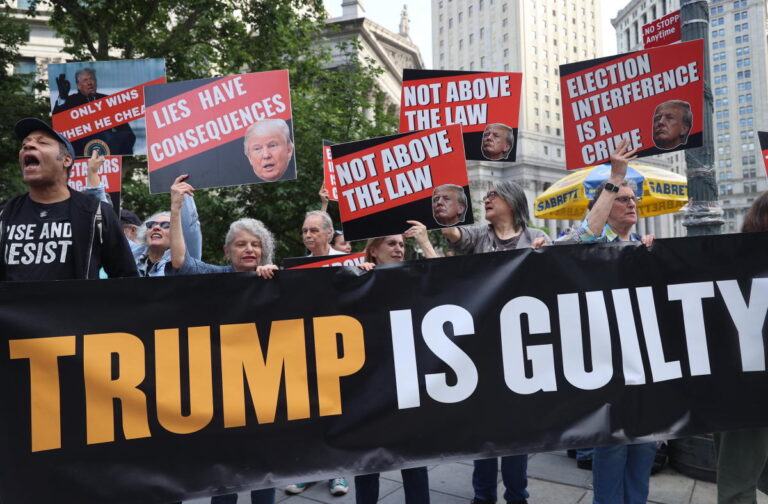Companies have become more cautious about politics this year, even as some billionaire CEOs have become more vocal in their criticism of politics.
The rift could widen further with Donald Trump being convicted of falsifying business records.
Consider how the 2024 election will play out inside Elon Musk’s company.
The billionaire made more than two dozen posts on social media in the hours after Trump’s sentencing, with the Tesla (TSLA) CEO calling the sentence politically motivated and accusing prosecutors of ignoring more serious crimes that have taken place elsewhere in New York state.
“If a former president can be convicted on such a trivial matter, motivated not by justice but by politics, then anyone can risk a similar fate,” he wrote in one post.
But a review of Musk’s companies, from Tesla to SpaceX to tunnel-building startup The Boring Company and even Musk’s own corporate accounts, reveals that they have all completely ignored the issue.
The money also doesn’t appear to be flowing from Musk’s company: Political action committees (PACs) have traditionally been the primary means by which corporations get financially involved in politics, but Tesla’s political arm hasn’t donated to anyone since 2018, according to the OpenSecrets campaign finance tracker.
The same goes for Twitter (now renamed X), whose last recorded PAC donations were made during the 2018 election, long before Musk bought the company.
Musk has previously said he would not donate to either candidate in the 2024 presidential election, and last week denied reports that he was in discussions with Trump about a role in his administration if he wins.
“There’s a real risk.”
Musk’s situation has major implications for corporate America as a whole.
Large corporations remain major sources of political donations, but there is evidence that they are increasingly trying to avoid backlash over campaign finance.
One index measuring corporate political involvement, administered by the Center for Political Accountability, shows that more companies are choosing to avoid political donations or detailing why they give money to certain candidates.
Of the 345 companies that have been on the S&P 500 since 2015, 270 now prohibit or fully disclose spending on candidates and their committees, up from 168 a few years ago, according to the CPA analysis.
CPA Chairman Bruce Freed said this reflects companies concluding that overt political activity “poses real risks” to employees and outside observers alike.
Freed, who is also a co-founder of the group, added in an interview before Thursday’s sentencing that billionaires are less hesitant to speak out because they “may see world politics differently.”
Following Trump’s guilty verdict on Thursday, a string of billionaire allies have voiced their support. In addition to Musk, investors David Sachs and Pershing Square Capital CEO Bill Ackman also made their political views known online.
“Significant funding with significant impact”
The hands-off approach from corporate boards began long before Trump’s conviction and came after years of increased public scrutiny of where companies spend their money.
Perhaps most notable in recent years have been the repeated public rebukes of companies that donated to 147 lawmakers who tried to overturn the results of the 2020 election.
Perhaps no company has received more attention on this front than Toyota, which has donated generously to lawmakers and faced corresponding pressure and advertising campaigns.
Toyota has donated a total of $0 to candidates through its PAC so far in 2024, according to OpenSecrets.
Careful observers expect corporations to remain a major force in the 2024 election, even if they try to avoid public controversy.
Fried said corporations have other ways of giving that are less publicized and harder to track, including focusing on state elections through little-known “527” committees that allow unlimited donations to candidates running for state and local office.
“Donations to super PACs and 527s [company’s] “Because this is Treasury money, there are no restrictions,” Fried noted, adding that his group’s research found the spending could affect a range of high-profile issues and is “significant money with significant impact.”
But overall, the rise and fall of corporate and billionaire influence will be part of a fierce election season that could contribute to economic turmoil in the coming months.
“It’s going to be a very tumultuous summer,” Kim Wallace, senior managing director and head of Washington policy research at 22V, told Yahoo Finance in an interview Friday.
Ben Warschle is Washington correspondent for Yahoo Finance.
Click here for Business and Money Politics News
Read the latest financial and business news from Yahoo Finance

